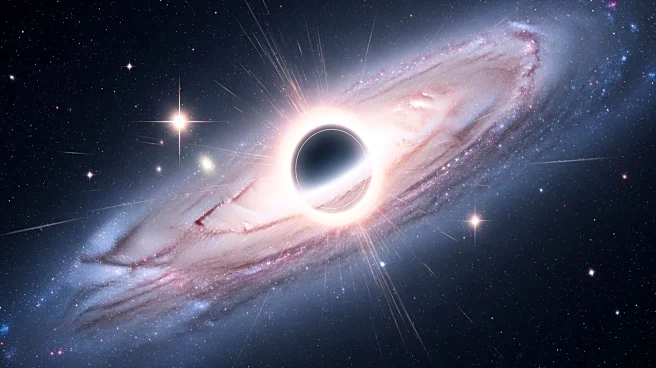What's Happening?
Scientists have announced a 90% probability of observing a black hole explosion within the next ten years. This prediction focuses on primordial black holes, which are theoretical cosmic structures believed to have formed shortly after the universe's inception. Unlike black holes formed from stellar deaths, primordial black holes are hypothesized to have existed since the early universe. The potential observation of such an event would provide unprecedented evidence of these ancient cosmic bodies, which have so far only been theorized. Current observatories face challenges in directly observing these phenomena due to the expected dissipation of uncharged primordial black holes over time.
Why It's Important?
The potential observation of a black hole explosion would be a groundbreaking event in astrophysics, offering new insights into the nature of black holes and the early universe. Confirming the existence of primordial black holes could significantly advance our understanding of cosmic evolution and the fundamental forces at play in the universe. This discovery could also have implications for theoretical physics, potentially validating or challenging existing models of the universe's formation. The scientific community and space observatories are likely to prioritize this research, which could lead to technological advancements in observational capabilities.
What's Next?
As scientists continue to refine their predictions, efforts will likely focus on enhancing observational technologies to increase the chances of detecting a black hole explosion. Collaborations between international space agencies and research institutions may intensify to pool resources and expertise. The scientific community will be closely monitoring developments in this area, with potential breakthroughs expected to generate significant interest and discussion within both academic and public spheres.










